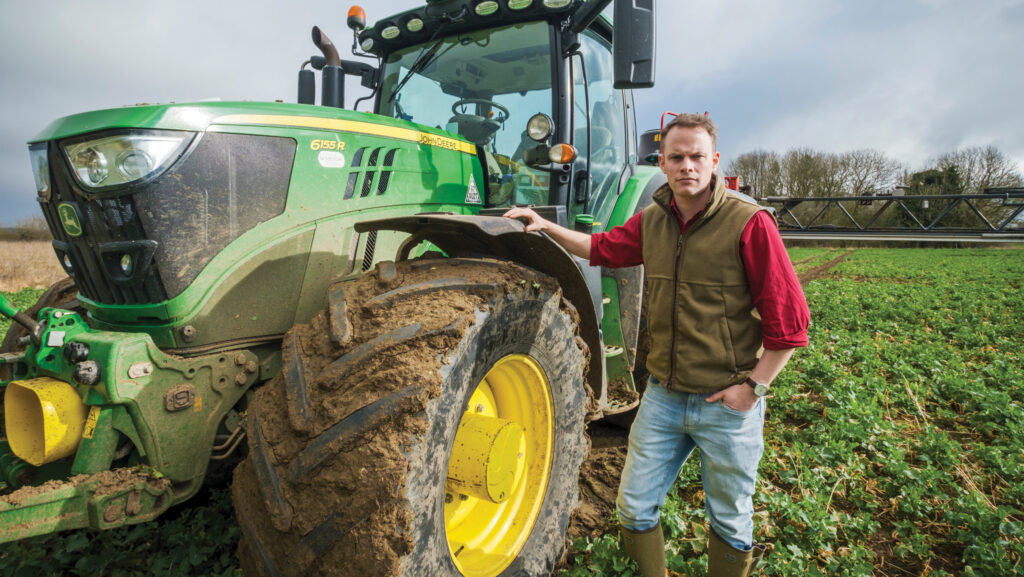Farmer Focus: Wheat suffering with severe drought stress
 Robert Scott © Kathy Horniblow
Robert Scott © Kathy Horniblow Norfolk is living up to its name as the driest county in the UK.
Recent rainfall has amounted to just 12mm on 15 April, with nothing since.
To make matters worse, in March we recorded just 15mm of rain, which is the driest we’ve been since 1929.
It has made for an easy outdoor lambing experience, but our crops are really suffering.
See also: Norfolk grower to start irrigating cereals amid dry spell
I drove past a block of Typhoon winter wheat on my lighter land, which has looked fantastic all winter, and panicked as a yellow tinge caught my eye.
Immediately, I suspected yellow rust as I had been listening to Johann Tasker and Louise Impey on the Farmers Weekly podcast discussing new varieties breaking down to rust.
On closer inspection, it was instead severe drought stress. The crop is dropping tillers at an alarming rate and is struggling to shake off gout fly and barley yellow dwarf virus pressure.
The harsh reality of insecticide-free farming really hurts in a particularly dry year.
Despite going into superb conditions in early March, our spring barley hasn’t got going.
Sugar beet is yet to emerge and our haylage leys wouldn’t trouble a lawn mower at the moment, let alone a set of triple-mowers.
It is in these farming years, when bad weather combines with low commodity prices and continued inflation, that one steps back and remembers why governments around the world introduced protection for agriculture in the 1930s.
Maybe governments then understood more about food production than our urban elite now.
I woke up to the news that one of our local tractor dealerships is closing down after 46 years’ trading.
The following news article was about a planning application for 200 acres of solar panels on arable land within that same district. A sign of the times.
Perhaps the “trickle-down” effect of reduced agricultural spending is beginning to hurt our local associated industries as we primary producers tighten our belts or diversify spending off farm.
Agree with it or not, self-sufficiency for farm businesses looks to be what the future holds.
Of course, self-sufficiency can only be achieved with a profitable industry.
Defra secretary Steve Reed has at least realised that. I hope he and Baroness Batters are able to find the answers the rest of us are searching for.


